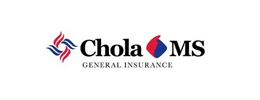Last updated on: September 19, 2025
Understanding deductibles in health insurance can be confusing, but knowing what they are can help people make better decisions about their health coverage. A deductible is the amount you need to pay out of your own pocket for healthcare services before your insurance starts to pay. For example, if you have a $1,000 deductible, you need to pay that amount first before your insurance helps with costs. The article ‘What is Deductible in Health Insurance with Example’ breaks this down in simple terms, helping people grasp this key concept easily, relieving concerns about unexpected medical expenses. It simplifies what you pay upfront and what the insurance covers, so you can confidently manage your health expenses. By providing clear examples, the article empowers readers to choose policies that fit their budget without any guesswork.
Health insurance in India is not always a good idea, but we can almost consider it a requirement. However, when you read your health policy you tend to come across a term referred to as deductible. A lot of individuals are confused with its existence or effects on claims and premiums. So in case you were searching on the Google, What does deductible mean in health insurance?, or How does it impact my claim amount? Well then as the answer to your curiosities in this article is your definitive, easy to understand guide with real life examples to 2025 just stressing on the words definitive and easy to understand here.
A deductible in health insurance simply describes how high you, as the policy holder, will tend to pay out of your own pocket towards the medical costs before the insurance company will start to pay the leftover costs. It is among the most significant core functions in health policies, such as co pay, sum insured as well as premium.
Example: Your health policy is a Rs 20,000 deductible. In case you are hospitalised and you receive a bill of Rs 80,000 you will cover the initial amount of Rs 20,000 and the remaining Rs 60,000 will be covered by the insurer.
Deductible assists insurance companies in keeping down very small claims and thereby maintaining a low cost in premiums to all. In the case of policyholders, a deductible will help drop the costs of plans, however, it will entail facing greater person exposure of monetary risk in case of a health crisis.
You may not know? Some Indian health plans are also providing flexibility in deductibles in the offing to allow you to tailor your cover according to your needs and pocket.
Health insurance deductible is a commitment on what is stated in your policy which you pay up front as a portion of the covered care as a qualification to tick in your insurance on the claims.
We will boil it down in simple steps:
In India, two types of deductibles are commonly used with the medical policies:
Insurance company specified and required. This is what you will pay each time in the claims.
You may select at will a larger deductible, so that you can have a lower premium. It is, e.g., frequently provided by corporate or family floater health plans.
| Deductible | Co Pay |
|---|---|
| Fixed upfront amount you pay before insurance begins | Percentage of the claim you pay each time (e.g., 10 percent of each bill) |
| Once a year, or once event | Each time a claim is made |
| Mostly fixable | Usually standardised by insurer |
| Reduces premium | Reduces premium; spreads risk |
Expert Insights According to insurance experts in 2025, an individual should only select a deductible when he or she is financially ready to meet an initial out-of-pocket expenditure in case of an emergency.
Suppose the following situation:
Example:
Rahul has a health insurance policy which has a sum insured of Rs 5 lakh and a deductible of Rs 50,000.
In the same policy year, Rahul is hospitalised again:
Here, earlier term is a good example of deductible being that you may end up paying out of pocket repeatedly with minor claims but insurer enters the situation when the cost is large.
Benefits:
You may not know?
Some new-age health insurance plans in 2025 allow switching your deductible level mid-term in case of life events (like marriage, childbirth).
Deductible is sometimes mixed up with other familiar terms:
No, you can not. When the sum covered by you does not exceed your deductible, it does not cost you anything when you are in hospital, because your health insurance provider will not pay a cent on your behalf.
For example:
Your case reflects on your pockets when you have a deductible of Rs 30,000 and hospital bill of Rs 25,000. It only starts when you have exceeded this Rs 30,000 limit in a policy year.
You may not know?
Top-up and super top-up health insurance are designed to contain a deductible in most products in India. They do not provide coverage unless your basic insurance or out-of-pocket expenditure has reached that point.
On the whole, as the bigger deductible you have, the smaller premium you pay annually.
Why?
| Deductible Amount | Yearly Premium (approx) |
|---|---|
| Rs 10000 | Rs 8500 |
| Rs 25000 | Rs 7200 |
| Rs 50000 | Rs 6000 |
Note: Premium can change between insurers and additional coverages.
Q: Does insurance charge less claim amount by choosing a higher deductible?
A: No, deductible only lowers the amount initially paid out of pocket. The rest of your covered expenses (after deductible) are paid up to your sum insured, as per policy terms.
Expert Opinion
There are some family deductible trend whereby we have a lot of family claims and have the amount up to the limit and after that the insurance covers all the family.
Q: Does deductible apply to all the hospitalisation, or just once in the year?
A: It all depends on the type of plan. Majority of the retail plans choose the deductible per claim, but most super top-up policies are deductible per year based on the cumulative bills.
In 2025, it is easy and convenient to make an application to a health insurance policy with the deductible level of your choice.
You may not know?
Fincover.com is also ranked one of the best health insurance comparison and purchase platforms in India as it allows you to filter the health insurance plans based on the deductible and price differences within seconds.
Pros:
Cons:
Q1: How does deductible and co insurance differ in health insurance?
A: Deductible is a maximum sum you should pay initially; co insurance is percent you are obligated to pay each time you reach on deductible.
Q2: What would occur when I fail to pay my deductible in hospital?
A: Before the insurer covers the remaining part, you have to go to settle your part. Hospital can request deposit or they can delay the claim.
Q3: Is it possible to alter deductible after purchasing the policy?
A: 2025 Some policies can be changed at renewal or following a major life change, while most others are set at the policy year.
Q4: Is deductible applicable even in cashless claims?
A: Yes, under cashless claim system you will still pay your own portion of your deductibles at the time of discharge; the other parts of the bill will get covered by the insurer.
Q5: Should I get high deductible super top-up plans when I have employer health insurance?
A: Yes, super top-ups that have deductible corresponding to your employer policy would be a perfect choice in covering large bills in hospitalisation beyond your group cover.
In case you have additional inquiries, reading policy wordings and online comparison at fincover.com may grant you the best and informed health insurance decision in 2025.












How could we improve this article?
Written by Prem Anand, a content writer with over 10+ years of experience in the Banking, Financial Services, and Insurance sectors.
Prem Anand is a seasoned content writer with over 10+ years of experience in the Banking, Financial Services, and Insurance sectors. He has a strong command of industry-specific language and compliance regulations. He specializes in writing insightful blog posts, detailed articles, and content that educates and engages the Indian audience.
The content is prepared by thoroughly researching multiple trustworthy sources such as official websites, financial portals, customer reviews, policy documents and IRDAI guidelines. The goal is to bring accurate and reader-friendly insights.
This content is created to help readers make informed decisions. It aims to simplify complex insurance and finance topics so that you can understand your options clearly and take the right steps with confidence. Every article is written keeping transparency, clarity, and trust in mind.
Based on Google's Helpful Content System, this article emphasizes user value, transparency, and accuracy. It incorporates principles of E-E-A-T (Experience, Expertise, Authoritativeness, Trustworthiness).